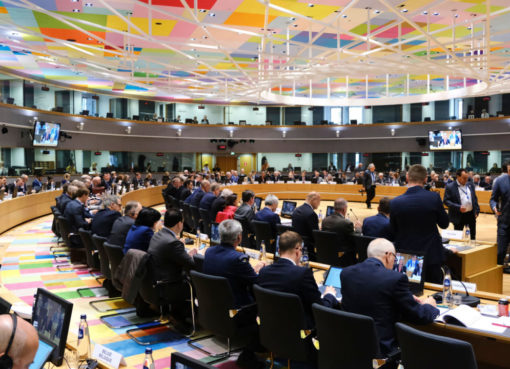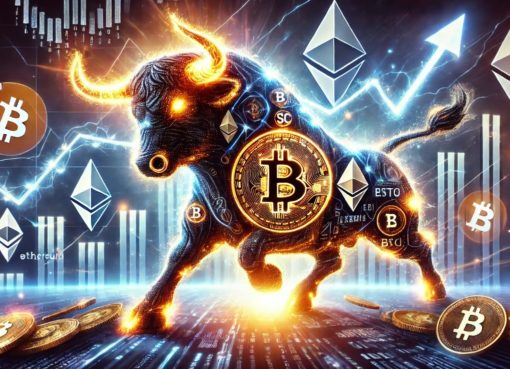Kromatika is a DEX that makes executing trades easy and wraps up many of the variable costs and other hidden headaches with DEX trading into one simple fee – paid in its utility token, $KROM. Its smart contracts interact with Uniswap v3 to place limit orders – swaps that execute at a user defined target price – without having to pay swap fees or suffer any slippage. Rather, you pay a fixed fee in $KROM that covers execution of the entire trade.
How Kromatika Avoids Three Major DEX Headaches
This fee is referred to as a service fee. In practice, it creates a fixed price for trade execution, rather than the variable rate in trading fees that Uniswap subjects you to. You also avoid slippage, in that you always get what you want at the price you wanted. Using Kromatika further removes the issue of front-running bots that occurs when trading on Uniswap directly.
Kromatika avoids swap fees because it’s not technically executing a swap. Rather, it is providing liquidity at a narrow price range on Uniswap’s v3 (which uses concentrated liquidity). It then pulls out the liquidity when the target price is achieved, and stores the funds for a user’s collection – fully automated. This is also how Kromatika avoids both slippage and front-running bots. It’s not actually executing swaps, but users still get a swap-like experience. Through this method, it also keeps the $KROM service fee low.
When DEX Becomes CEX
For average traders, it creates a more transparent scenario for their trading activity and helps compartmentalise the tricky extra costs that come with transacting on Uniswap directly. The service fee covers any discrepancies on the trade. $KROM is therefore a token to make headache and hassle-free trades on-chain, and further blur the boundaries between a DEX and a CEX.
There are other things that help push the definitions of DEX. As Kromatika services don’t run on Uniswap directly, it has the ability to create limit order features for Uniswap that would standardly enjoy on a CEX. Uniswap’s ‘limit orders’ (in practice, narrow range orders) must still be manually collected – somewhat defeating the purpose.
No Limits: How to Use Kromatika Limit Orders
On Kromatika, you can execute limit orders just as easily as you can on a centralized exchange. You simply state the price you want to pay for an asset, pay the fixed service fee, and Kromatika reads the trade which has been stored on the blockchain for execution when the conditions – i.e, the price you asked for – are right. After a short period, if the trade still hasn’t been executed, a user can cancel it.
If you tried to make a swap transaction for a large amount in one go, say 1000 BTC, you’re in for a world of hurt. The price slippage would be enormous, and front-runners would muscle in on the transaction to further damage your margins. Of course, if you want the trade instantly – it’s the price to pay. If you follow the larger, more sophisticated investors, you will find that they are not making knee jerk sales decisions on their portfolio. They are always working to a strategy. The general user should too, and with Kromatika they can.
Using Kromatika, users can instead accumulate their order gradually at their specified price, and provide liquidity at that point with their half-completed orders. This means while the asset trades near their target price, a user gets to farm LP fees while waiting for their trade to complete. These LP fees help offset or even surpass the $KROM fee and gas fees paid to execute the trade – and there is no slippage when performing orders like this. It’s a high volume traders dream, but the model ports effectively to retail use too, helping all users save fees.
Once a trade has been finished, a user can collect the amount due to them from their list of processed trades by logging into the dApp. There is no mad rush to withdraw before market conditions change – the trade is safely completed. Kromatika does this work for you. Best of all, while you wait for the trade to complete, you even collect additional LP trading fees from users buying near your target price.
A user can also see an overview of all the limit orders they have placed in one place. It brings a key functionality to the DEX experience and minimises the associated hassle that comes with placing orders on a DEX.
Big Swaps, No Slippage: Kromatika Swap Aggregator
As a seasoned investor knows, when you try to execute a large trade on a single DEX, you can lose drastic sums in the trade due to the lack of liquidity available for the swap. This applies even when trading stablecoins. You may think it would be 1-1, or perhaps a slight discrepancy. Not so, as Kromatika highlighted in a recent Twitter thread. If attempting to trade $1.5 million USDT for USDC on Uniswap – Ethereum’s most prestigious DEX – a massive 68% price impact would be felt – not exactly an attractive trade.
Liquidity is what keeps markets stable and ensures fair, seamless exchange of assets. That’s why, when executing swaps, you want to trade on the pool with the highest available liquidity, or break up the order across multiple pools to avoid slippage. Kromatika’s swap aggregator does this for you. The aggregator draws together liquidity from multiple pools across many L1 and L2 protocols and uses that pooled liquidity to execute the swap for the user at minimal to no slippage, as well as ensuring a trader gets the best price for their swap at the moment they execute.
Another Link in the Chain
This functionality is made possible by Chainlink Keepers, which Kromatika has successfully integrated their DEX with. They are not the only DEX to do so, and they follow in the footsteps of DeFi protocols like bZx, xToken, Teneo, and Pacoca.
Chainlink is the market-leading decentralised oracle for the observation and accurate reporting of market information. Kromatika’s smart contracts use this reported information to know when the price hits a certain level and the user’s trade needs to execute. As the data used for trade-execution is off-chain, it completely denies access to front-running bots, who don’t get information about the upcoming trade until it’s already completed.
Chainlink is currently best-in-class. “Keepers will simply check 24/7 whether the target price is reached or not,” says the team. Part of the $KROM service fee is sent to Chainlink’s keepers for this service, but it guarantees accurate price information for the DEX and frees up Kromatika’s developers to work on the rest of the DEX.
Kromatika is deployed on Arbitrum, Optimism, and Polygon (and, of course, Ethereum). These L2s help massively reduce fees and increase throughput on Kromatika. The success and user-uptake has been particularly pronounced on Polygon, with the team stating “we have experienced a significant rise in users since deployment on Polygon.” The low-gas fees associated with using Polygon are passed directly to the user’s in terms of the lower service fee in $KROM that they pay.
When a user pays a fixed service fee in $KROM tokens, the DEX deducts from the user’s balance, sells the $KROM for ETH and pays Chainlink for its off-chain processing services. This creates a cycle where $KROM is placed into circulation after a trader uses it.
Kromatika’s integration with Chainlink, like everything else in the project, is open-source. The DEX’s code can be seen on Github, and the Kromatika team invites contributors to join their mission. Migrating more crypto users on-chain and making them more comfortable trading on a DEX is crucial for the future health of the market. Users just need the right tools. Kromatika welcomes anyone who wants to help bring those tools to life and join their growing team and active community of web3 professionals.
Not Just Cromulent, but KROMulent
For too long, users have put up with sub-par DEX experiences because of the novelty of the space and the hysteria of the bull market, willing to fritter away extortionate sums in gas fees, trading fees, slippage, and front-running in order to be able to make their trades on chain and to get hold of the most exciting tokens in the space.
Kromatika looks set to break that depressing paradigm, and offer a simplified, hassle-free, low fixed-fee online trading service that improves on Uniswap dramatically with the introduction of genuine limit orders. With the widespread expansion to Ethereum’s layer 2 solutions, the Kromatika team clearly means business, and wants to offer its users more than just crumbs, but the whole entire feast. For more on Kromatika, do head to their Twitter!




